Not Your Father's Banker
Bloomberg Markets
|April - May 2020
Owl Rock Capital co-founder MARC LIPSCHULTZ says direct loan funds fill a gap in the market and take risk out of the financial system. Now the 4-year-old business is being tested

Lending to midsize companies once seemed like the boring side of banking. Not anymore. A decade of ultralow interest rates and stricter bank regulation inspired a generation of financiers to create funds to provide companies with credit that banks no longer offer. In exchange, investors got juicier yields than almost anywhere else— as much as 5.3% more than on junk bonds or leveraged loans, according to a Goldman Sachs analysis in December.
The poster child for this boom in direct lending is Owl Rock Capital Partners LP, a 4-year-old firm founded by three Wall Street veterans: Douglas Ostrover from Blackstone Group, 57; Marc Lipschultz from KKR, 51; and Craig Packer from Goldman Sachs Group, 53. By late 2019, when it sold a 20% stake to Neuberger Berman Group’s Dyal Capital Partners, the company was valued at $2.5 billion. By capitalizing on its founders’ Wall Street connections and zeroing in on one part of the $800 billion private credit market, Owl Rock built up about $16.5 billion in assets under management.
Now the coronavirus pandemic and its economic consequences are set to challenge this model in an unprecedented manner. In February—and again in early March— Bloomberg Markets sat down to talk with Lipschultz, the company’s president, about how this new business model evolved and what he expects to happen if there’s a global recession.
KELSEY BUTLER: Will the current market volatility impact your strategy or what kind of investments you make?
Esta historia es de la edición April - May 2020 de Bloomberg Markets.
Suscríbete a Magzter GOLD para acceder a miles de historias premium seleccionadas y a más de 9000 revistas y periódicos.
¿Ya eres suscriptor? Iniciar sesión
MÁS HISTORIAS DE Bloomberg Markets
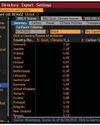
Bloomberg Markets
See Which Countries Are Falling Behind On Climate Change
Under the Paris Agreement, 190 countries and the European Union pledged to take steps to hold the global temperature rise to less than 2C (3.6F) from preindustrial levels—and preferably 1.5C.
4 mins
October - November 2021
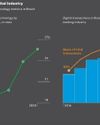
Bloomberg Markets
Billionaires Vie for the Future of Brazilian Finance
An escalating battle between two billionaires is upending the financial community in São Paulo, Latin America’s wealthiest city.
8 mins
October - November 2021
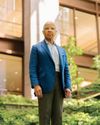
Bloomberg Markets
Ford Foundation's Darren Walker: ‘We Have to Get Uncomfortable'
DARREN WALKER, 62, disrupted his Wall Street life more than 25 years ago when he left what is now UBS Group AG to volunteer at a school and eventually pursue a career in community development and philanthropy. Since 2013 he’s been at the pinnacle of the philanthropic world as president of the Ford Foundation, created by the family of automaker Henry Ford during the Great Depression to advance human welfare.
8 mins
October - November 2021

Bloomberg Markets
Fueling the Ener Transition
I MAY BE BIASED, but some of the most important research and data on the Bloomberg terminal lies in one of its lesser-known functions: {BNEF }
1 mins
October - November 2021
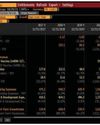
Bloomberg Markets
Dig Into Analysts' Estimates for Disruptive Companies
THE PANDEMIC ERA generated a whole wave of disruptive companies as it accelerated the introduction of new products and services in areas including artificial intelligence, digitization, electronic payments, online meeting platforms, and virtual currencies.
4 mins
October - November 2021
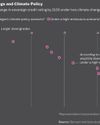
Bloomberg Markets
Climate Risks Come for Sovereign Credit
FOR YEARS climate scientists have warned about the ferocious wildfires and hurricanes that are now overwhelming many communities. Today alarms are ringing about a related financial danger: risks lurking within government bonds, the biggest part of the global debt market.
7 mins
October - November 2021
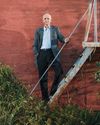
Bloomberg Markets
Responsible-Investing Pioneer Lydenberg Says ESG Needs An Upgrade
STEVE LYDENBERG’S passion for social change was inspired by anti-Vietnam War demonstrations, consumer boycotts, and the movement to divest from apartheid South Africa. But he didn’t take to the streets. Instead, Lydenberg turned to the world of finance to help catalyze societal change.
8 mins
October - November 2021

Bloomberg Markets
Engine No. 1's Grancio: ‘People Will Appreciate an Economic Argument'
ENGINE NO. 1 sent shock waves across corporate America in May when the fledgling investment firm won a boardroom battle with Exxon Mobil Corp., securing three seats on the oil and gas giant’s board after purchasing only about $40 million of its stock.
6 mins
October - November 2021
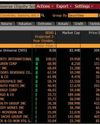
Bloomberg Markets
Find Out Which Companies May Ramp Up Payouts After Covid
AS THE PANDEMIC DISRUPTED business last year, many companies cut or suspended dividends. Which will boost their payouts when economies pick up again?
2 mins
October - November 2021
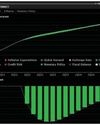
Bloomberg Markets
Get Into the Minds of Central Bankers as They Navigate Shocks
HAVE YOU EVER WONDERED how central bankers forecast the impact of shocks on the economy?
4 mins
October - November 2021
Translate
Change font size

